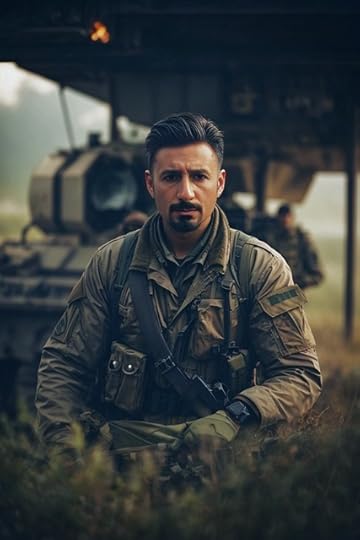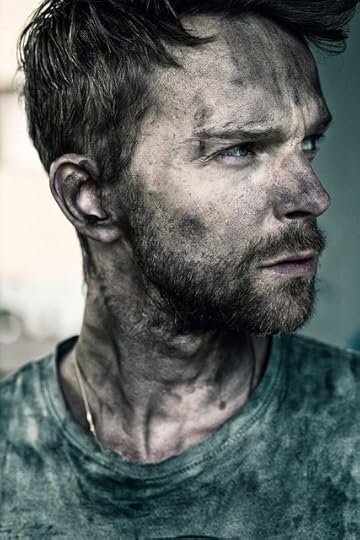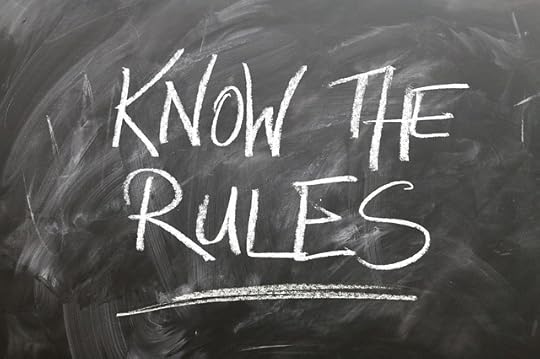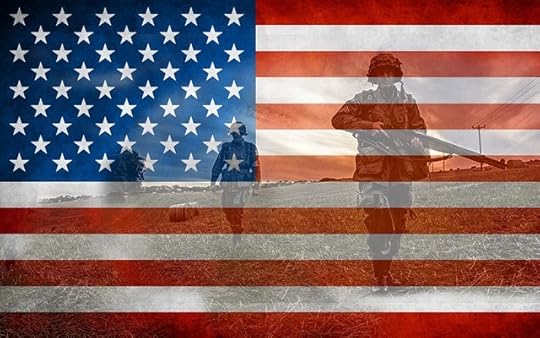THE SOLDIER EFFECT

Okay, can we talk about men in uniform? I’m a girly girl and like many of us, young and old alike, we are drawn to the soldiers out there. The men in blue, or white, or camo who make us swoon and want to wait for them to come home safe and sound. It’s a Ro-military thing. Soooo romantic.
As a writer, I have always leaned toward the military type characters who know what they’re doing, can protect the whole world, and face the hard stuff without whining, (so unlike the regular guys I’ve known.) But of course, the real draw to these characters has everything to do with their hidden flaws, their nobility, their honorable view of the world, and, oh yeah, their struggle to balance two sides of a difficult life—the warrior and the human.

INSPIRATION. Okay, now setting aside the girly sighs and fantasies, let’s talk about writing these kinds of characters. Military characters in fiction, whether male or female, require a lot of focus, research, and even more importantly, respect.
Watching some of the best military thriller movies and TV shows naturally spurs us on, drives us to the keyboard and into our imaginations. However, Reacher, Jack Ryan, The Night Agent, and Extraction (both 1 and 2,) are all well and good. Reading L.T Ryan’s wonderful Jack Noble series, or Nelson DeMille’s Scott Brodie series pushes all the buttons and makes us want to write smart-mouthed, intelligent, powerful military or paramilitary characters. All these stimuli light our creative fire but there are a few very important things to remember.

THE REAL IN FICTION. First, Reacher and Scott Brodie are not real, but the soldiers they’re based on are real people. They’re human beings with struggles, lives, memories, and feelings about who they are and what they do. There are military people who don’t necessarily like their work, there are others obsessed with it, and there’s everything in between. It can be so easy to just take the inspiration Hollywood presents and run with it. Yes, we might have a great story idea, we might be really good writers, and we may get a lot of positive feedback shot our way because of our story. But I feel something more when I write a novel that involves military people. Time for a reality check.

RULES OF ENGAGEMENT. Let me share some of the big flaws I find myself leaning toward when developing a story. Maybe you do these things too. Real life facts matter, and I’m always prepared to back up and correct my trajectory.
First. Surprise! The good guys are not 100% good. Not all soldiers are virtuous, or even good men or women. Some of them are mentally unstable. Some of them see things they wish they never witnessed, understand things about America they wish they didn’t know, or discover how easy it actually is to do illegal things within the military. This is nothing new. It’s the nature of the beast.
However, not every soldier is shaded or disillusioned. There is that other extreme. The extreme that creates the stereotypical perfect soldier, and that’s just as bad in today’s fiction—the Maximus Decimus Meridius of the American military. The guy no one even questions because he’s just plain too true and decent. We authors need to avoid writing this guy like the plague. Not that Maximus was boring (oh, sigh,) but a twenty-first century Roman general just doesn’t work anymore. Especially one who has never been corrupted.

RESEARCH! There’s more. Research, research, research! Don’t ever forget that what you write can be easily checked and mocked. An AK47 is not an M4. And knowing the difference between a Glock 26 and a Baretta, or that a Navy Seal carries a Sig P226 and the CIA prefers a Glock 19 is kind of important. What weapons these fictitious characters carry tells a lot about the man or woman holding it. And a lot about the writer telling the story.
Talk to military people, former military, and experts in whatever journey your character is about to embark upon. Ask them to be beta readers, trust me, they’ll catch the most amazing, silly, and sometimes stupid mistakes.
Naturally, no one really expects every writer to be a weapons expert, but simple knowledge goes a long way in making the story strong. It shows initiative on the author’s part and a lean toward reality, but it shows something else, too.

RESPECT. I mentioned this earlier, and I’m always pressed to keep it up front and present when I sit to write my characters. Respect. When I write any military character, I always get this deep thumping need to respect the real people out there doing the hard work. Seeing the ugly things of life. Being as strong as they can and pushing themselves beyond their capacity to accomplish a goal.
Yes, they question things, they follow orders to do things they’d never have imagined doing. They fight, and survive, and live with their experiences, good and bad. They love and lose. These are men and women who see good and evil every single day, and do whatever it takes to get through it and out the other side vertically, and whole.
Respect. Yes, I’m making up a character, but it’s important to remember the models I’ve used along the way. I never want one of my military characters to misrepresent the very real human heroes and villains out there.
Respect. Many died in service, and we are using their experience for mere entertainment. RESPECT. Yup. It’s big time important.
How do you feel about it? I’d love to hear your thoughts.



